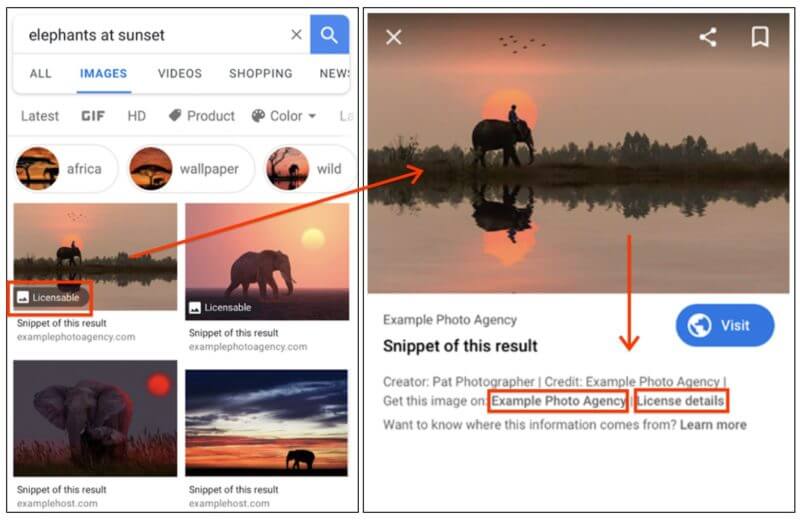Google has launched a new structured data element for image license metadata that allows Google Images to show a licensable image label in the search results.
The CEPIC, the European picture agency, wrote about this on its blog saying “We are happy to share now that Google Images is releasing a metadata framework through Schema.org for licensable images. Google will also be supporting the IPTC metadata standard. Content creators and distributors will be able to include the licensing information for pictures on their site, and it will be reflected on Google Images.”
What is looks like. Here is a screen shot that shows the licensable label or badge in the search results, while also added links to how to get the image and the licensing details on the image detail page within Google Image search.
Not live yet. Google said “The new badging and license information display isn’t live yet, but you can prepare your content for it now.” But this is coming soon and if you mark up your images, Google may show the information in image search when this goes live.
The markup. Google published the technical details for this meta data over here. Google offers two ways that you can add metadata. You only need to provide Google with one form of metadata to be eligible for the Licensable badge, and any of the following methods is sufficient, Google said.
- Structured data: Structured data is an association between the image and the page where it appears with the mark up. You need to add structured data for every instance an image is used, even if it’s the same image.
- IPTC photo metadata: IPTC photo metadata is embedded into the image itself, and the image and metadata can move from page to page while still staying intact. You only need to embed IPTC photo metadata once per image.
Why we care. If you manage sites with licensable images, this tag can help communicate the licensing details to potential customers, reduce accidental image theft and increase revenues for your images. The CEPIC said “As Google iterates on the feature, we expect that they introduce functionalities that will let people filter pictures tagged with this new license metadata. Further, the mark-up could also be applied by your customers who have purchased your images to direct users back to your website in a way that wasn’t possible before.”

